We recently connected with Ruoxi Hua and have shared our conversation below.
Ruoxi, thanks for taking the time to share your stories with us today We’d love to hear about when you first realized that you wanted to pursue a creative path professionally.
As far as my memory can go back, drawing has been my hobbies. In my childhood, I drew on any surface I could find paper, newspapers, boxes, walls, sometimes even furniture… In high school, I got to know a friend who was interested in the liberal arts, and I was exposed to literature, music, and visual art. I tried to create artworks of my own, which might seem naïve from today’s point of view but provided me with an immense sense of happiness and fulfillment during those days. That sense of happiness and fulfillment was what ended up motivating me to pursue an artistic career. However, at that time, I was uncertain whether art was my true passion or just an “adolescent phase.”
When I told my parents that I wanted to go to an art school, they both gave me a hard “NO,” so I ended up in college majoring in biology. Nevertheless, I took as many art classes as possible. During a figure drawing class in my sophomore year, the teacher saw my works in class and encouraged me to become an art major. By the end of that semester, I declared a biology-and-art double major. Unfortunately, at the same time, I had to take a semester off due to my depression. During that several months of recovery, I realized that I had the ability to take the wheels of my own life and decide what I want to do in spite of what others think.
After my break, I started taking oil-painting classes. I had never done oil painting before, but I aspired to be good at it. My oil painting professor, who has influenced me the most, would talk on and on about painting and throw all these art books at me, and I would read them all. When I have spare time, I always chose to work on my painting, instead of staying in the biology lab, and my passion for painting became clearer and clearer to me over time. Therefore, I talked to my parents about my plan to go to an MFA program after college. Naturally, they were not very happy at the beginning, and we actually spent months arguing over this topic. In the end, they acknowledged my insistence and passion and agreed to my plan. Now I am an MFA Fine Arts candidate at School of Visual Arts.
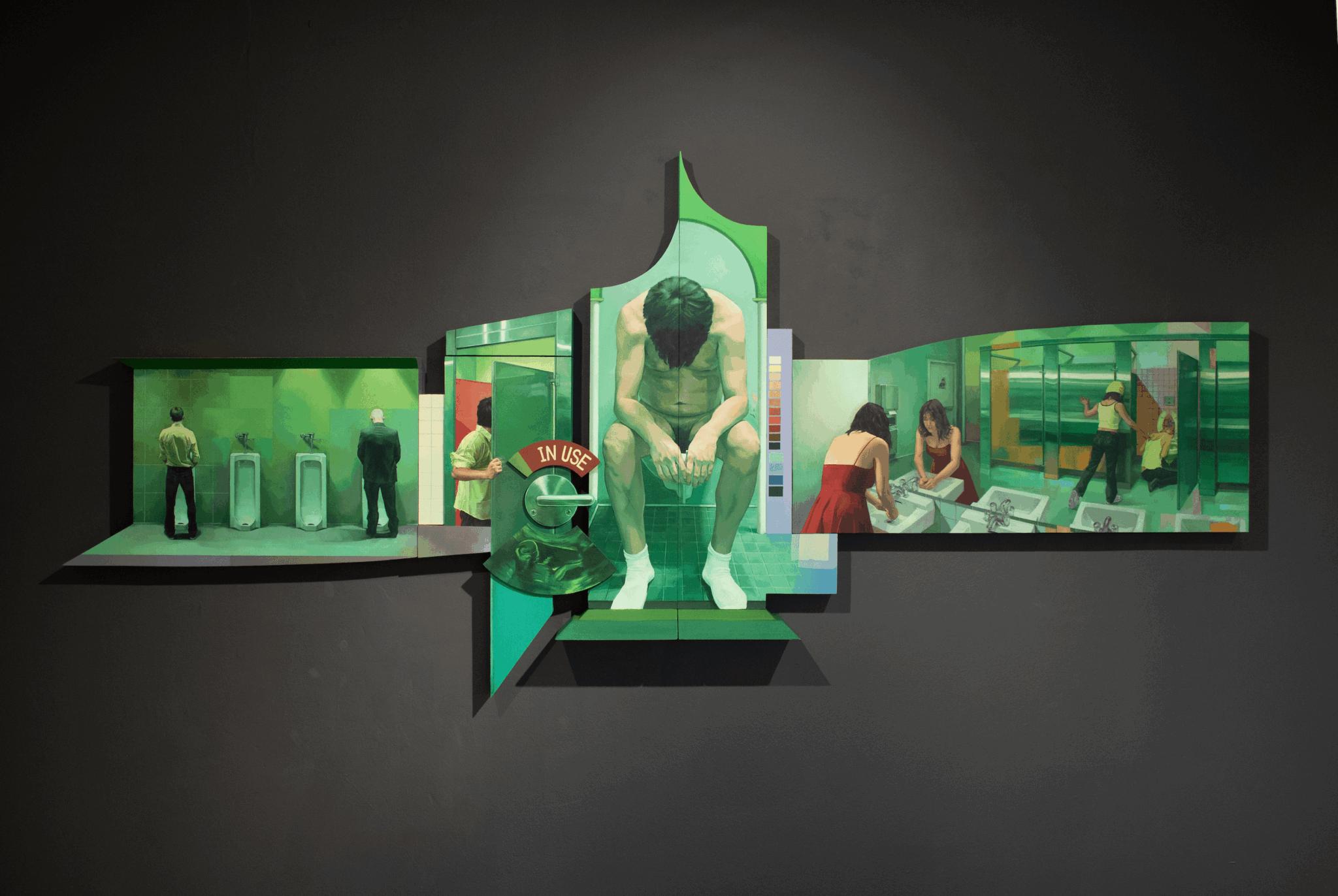
As always, we appreciate you sharing your insights and we’ve got a few more questions for you, but before we get to all of that can you take a minute to introduce yourself and give our readers some of your back background and context?
I am an emerging artist who works with painting, printmaking, and drawing. My works involve narratives, depicting figures situated in some interior space, usually human-made but inhuman environments. I am interested in space and composition, especially in the interaction of the organic shapes of figures with the architectural structures of their surroundings, as well as with the edge of the pictorial space.
The juxtaposition of individual humans and cold industrial structures imparts a sense of claustrophobia, alienation, repression, or even depression that one suffers living in the postmodern world. Figures in my works find themselves in spaces (such as public bathrooms and elevators) where the private confronts the public, where the isolated room provides moments of solitude and security to them, only for them to realize that their privacy is uncomfortably shared by others. In contrast to the alienated individuals as my subjects, the narrative structures of my works often allude to Western mythology and literature, thus producing a comical effect via the contradiction between the tradition of metanarrative and the postmodern void of collective meaning.
Earlier this spring, I finished a multi-paneled painting, titled Portrait of Mme H. Flower in the White Room, which took me almost a year to complete. I fabricated these panels in unconventional shapes as a compositional experiment on the pictorial edge. The idea is to allow my painting to extend itself into the surrounding space. The work consists of four scenes in public/private bathrooms, which are connected by an open-ended narrative. The subject matter of bathroom is inspired by a chapter in Jame Joyce’s Ulysses.
Later in the summer, I made another painting, Is Anybody Out There? For this painting, I decided to use elongated format and unconventional cropping. The painting depicts a person entering an elevator, with another person inside the elevator. The painting crops away most of the two figures so that the viewers can only see the top of the figures’ heads. Inheriting my exploration in composition from the last painting, this painting consists of two panels, the seams between which coincides with the boundary between the elevator and the wall surrounding it.
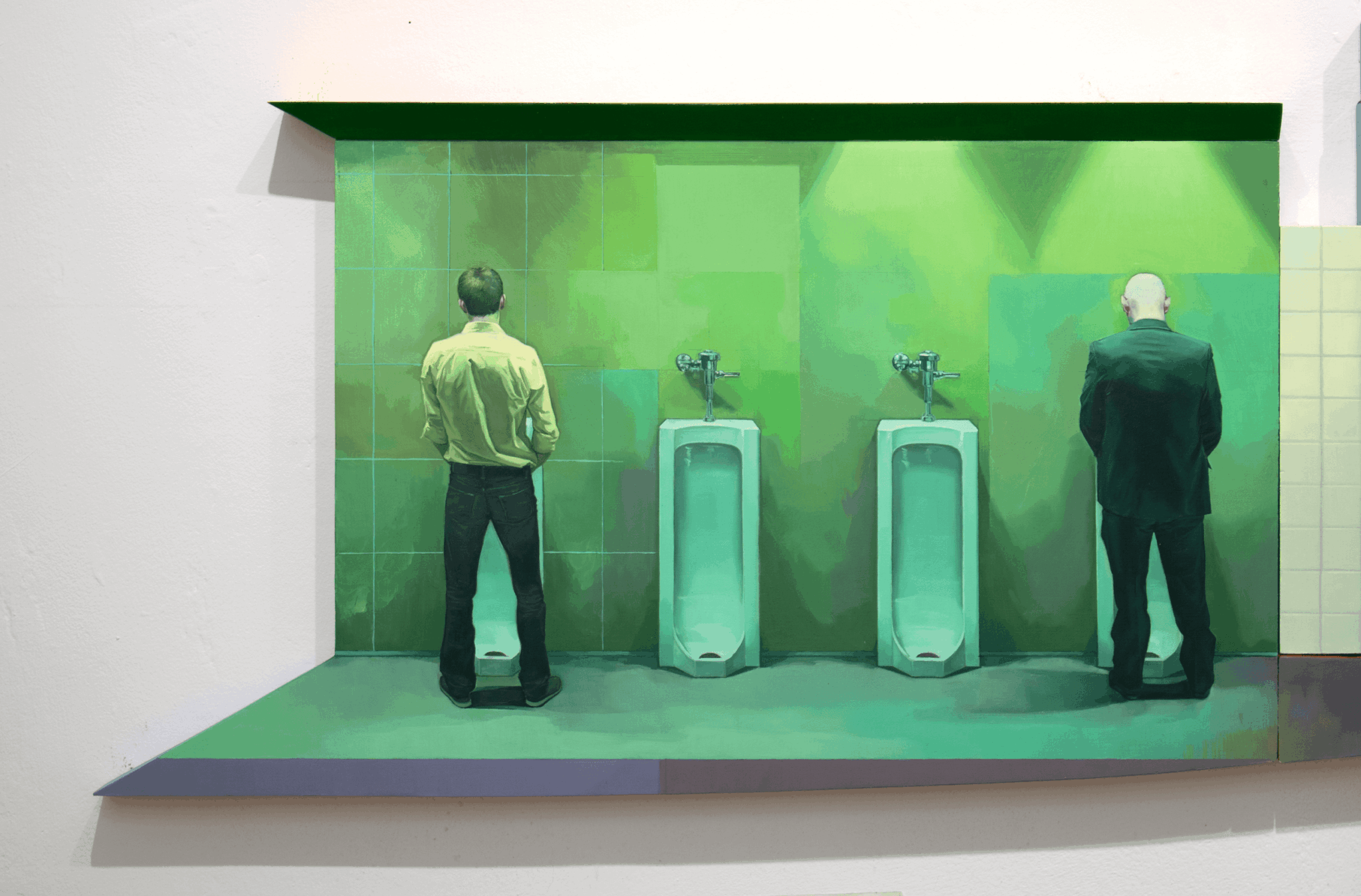
What’s a lesson you had to unlearn and what’s the backstory?
I was born and raised in China. Since I entered middle school, I have been put in an increasingly competitive environment; there were exams after exams. I was gradually conditioned to tie my personal value to things like test scores, a quantifiable and yet very one-dimensional criterion. It seemed the only measure of my success was whether I did better than my peers in assignments and exams, and therefore I took great care to make sure that I yield the best outcome possible for each exam. From middle school all the way to college, this mindset has allowed me to remain a successful student.
However, since I embarked on my journey as an artist, the lesson I learnt growing up ceases to be helpful. There are many forms of art, and each, if well executed, has its own unique value. It is often difficult, let alone unjustifiable, to describe the values of different artists and their works with the terms “better” or “worse.” Nonetheless, I sometimes do encounter peers who possess more advanced techniques and/or more sophisticated theoretical knowledge on art than I do, but we might come from drastically backgrounds that lead to our differences in those capabilities. Over time, I’ve been learning to stop thinking in terms of better or worse and trying to only ask myself whether I am better than I was. Moreover, unlike exams, for which only the result matters, artistic practice values process as much as results. Due to the open-endedness of art, mistakes or failures during the progress usually turn out to be opportunities to push my works further. My fear of failing, which has been driving me to succeed, is therefore another thing I had to unlearn.
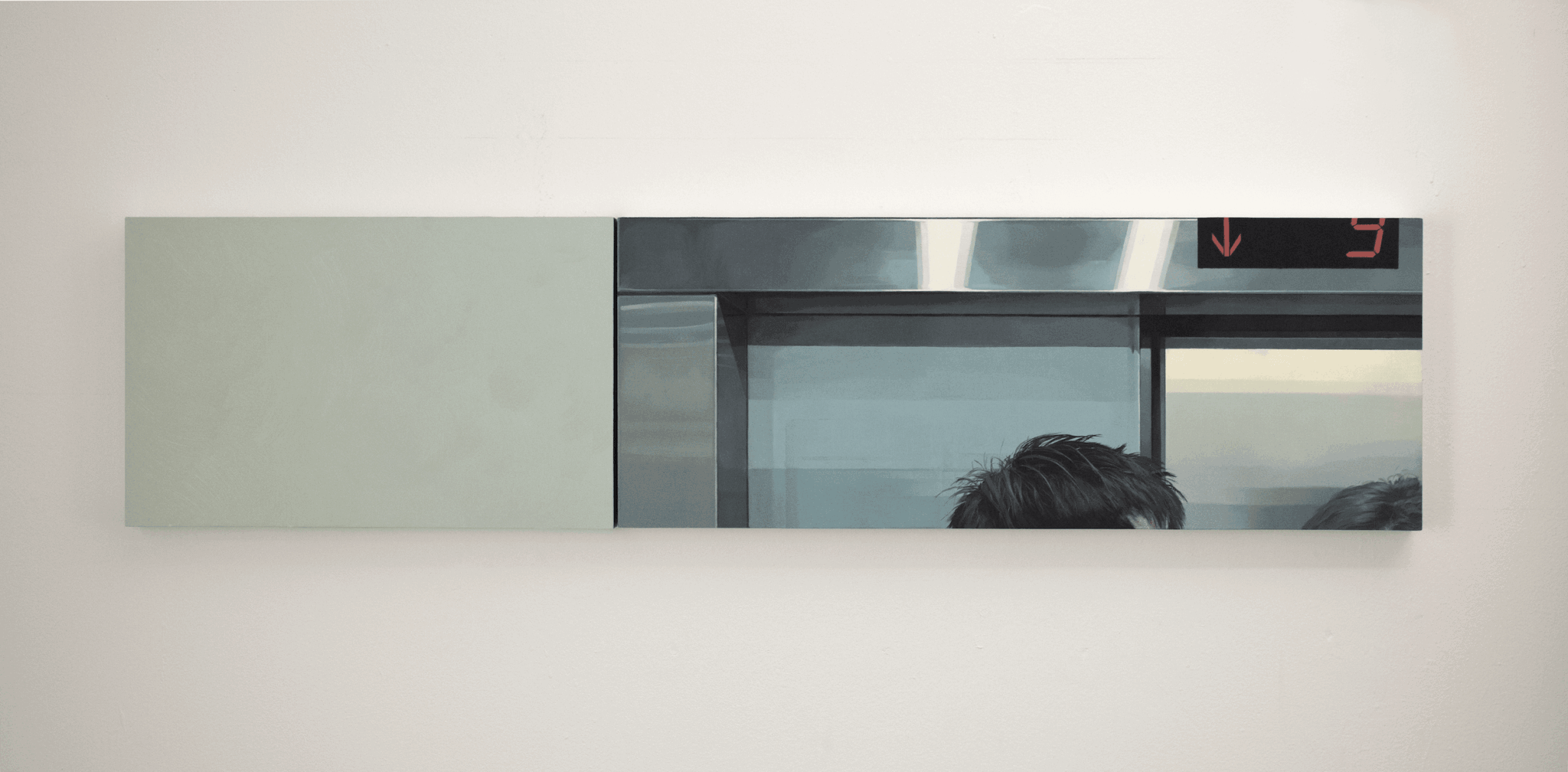
What do you find most rewarding about being a creative?
For me, the rewarding aspect of being an artist has changed over time. As I mentioned earlier, when I just began to create my own very amateur-looking works, both the process and result were immensely rewarding: I felt meditative and peaceful when I focused on making my works, and when the work us finished, I felt a sense of accomplishment. That art allowed me to get along with myself and express my feelings seemed its most rewarding gift.
Later on, when I started to learn oil painting in college, the process of making my work became less peaceful, as I have to tackle many facets in my painting all at once: lines, shapes, gestures, movements, lights, and colors. However, when I overcame the problems, made unexpected discoveries, and finally had a nice painting in front of me, I always felt very fulfilled. Moreover, the recognition from others, from my teachers, peers, and friends, added to this fulfillment.
My relationship with my artistic practice changed, when I began to craft my own works and my own artistic language beyond my training. Because I am making my own works instead of just fulfilling “class assignments,” I have to think way more about the “what” “why” and “how” of my works. My creative process and outcome become less rewarding now that I have to take more time and deal with more uncertainty in my works, and the result is not always satisfactory. I would be lying if I said I didn’t feel rewarded less often than before. Nonetheless, when I see how my viewers see, feel, and sometimes sympathize with my works, I feel all my efforts are truly worth it.
Contact Info:
- Instagram: bullockbefriendingbard
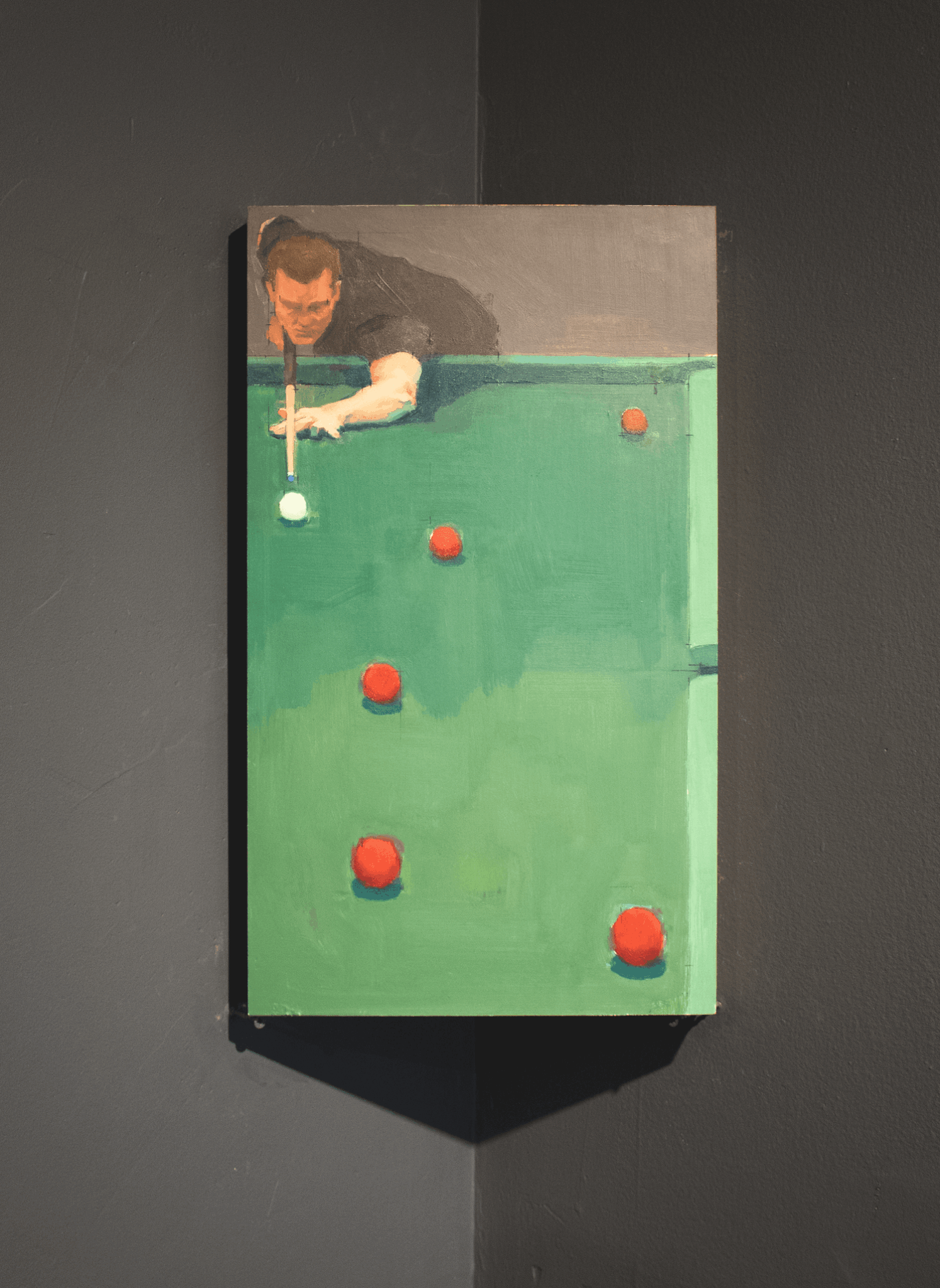
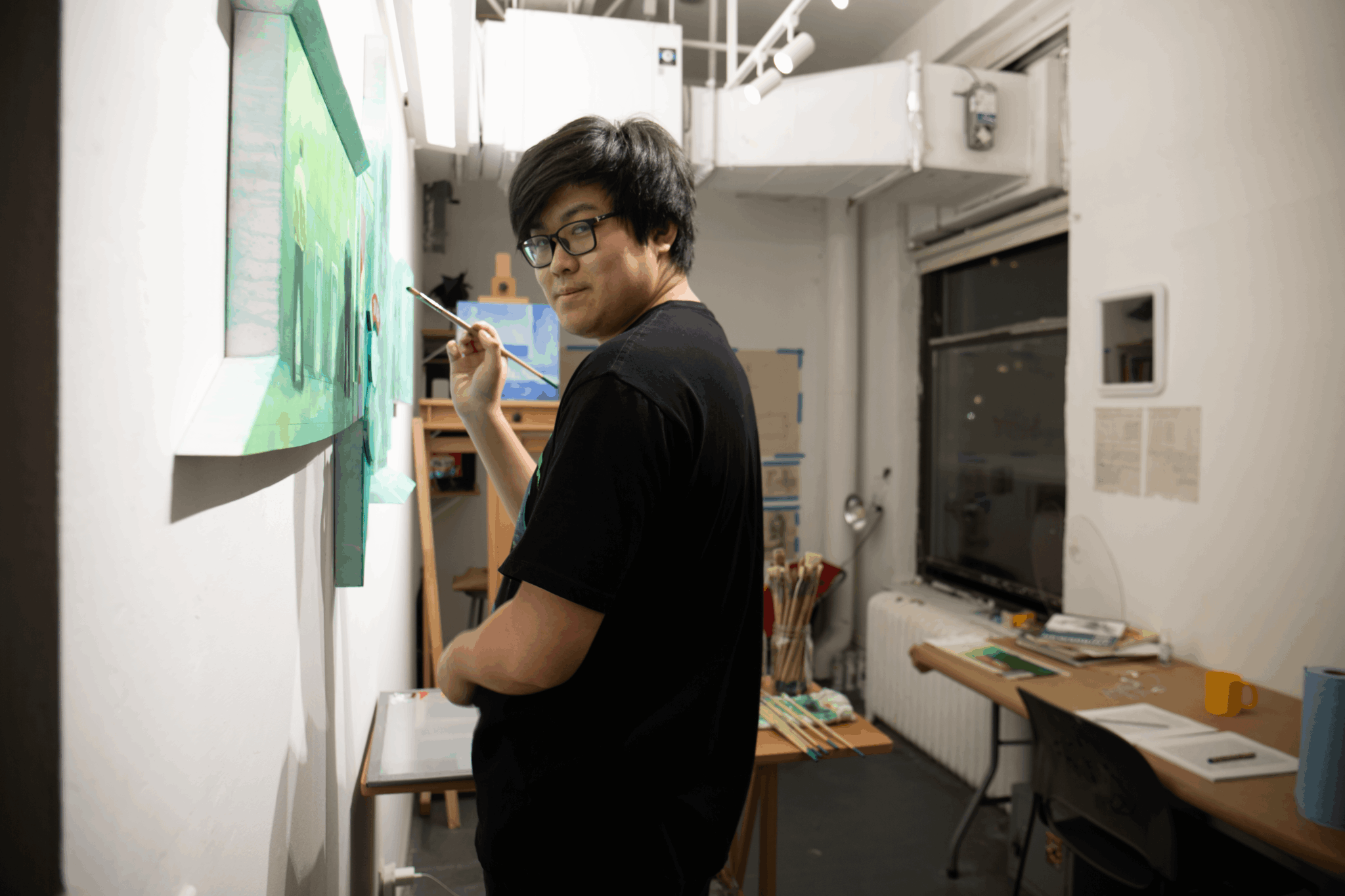
Image Credits
N/A


